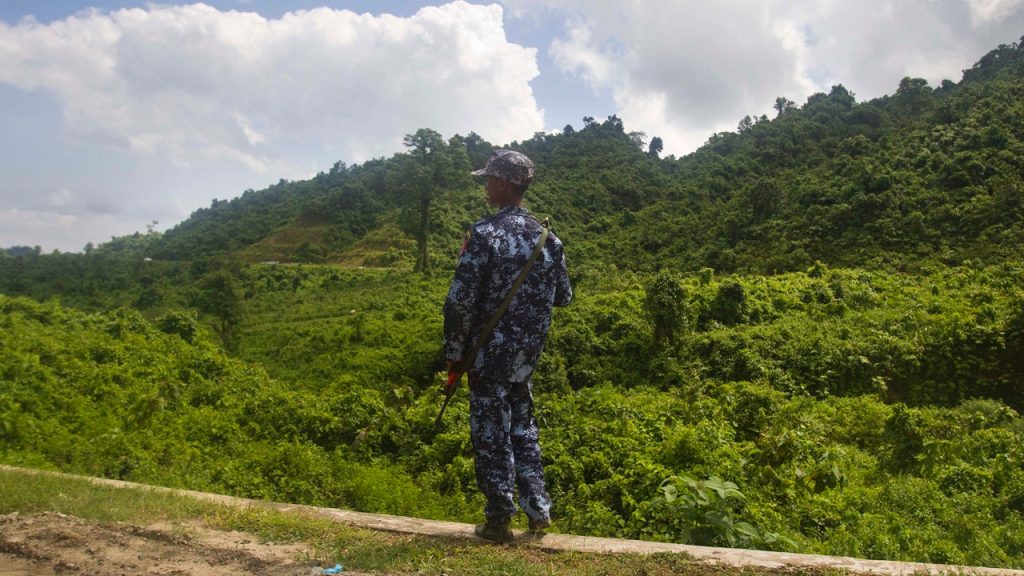The U.N. human rights office has expressed concerns about the reports of increased violence in Burma’s Rakhine state, particularly in the town of Buthidaung. The violence includes attacks on Rohingya civilians by both the military and an ethnic armed group, with reports of burning of the town, air strikes, shootings of fleeing villagers, beheadings, and disappearances in the northern part of Rakhine. Tens of thousands of civilians have been displaced as a result of the fighting in Buthidaung, supported by evidence from satellite images, testimonies, and online videos showing extensive destruction in the town and surrounding areas. The situation presents a clear risk of further violence escalation.
The U.N. High Commissioner for Human Rights spokesperson, Liz Throssell, noted that new attacks on Rohingya civilians by Burma’s military and the Arakan Army, the military wing of the Rakhine ethnic minority movement, have been reported. Survivors have recounted harrowing tales of atrocities, including witnessing numerous dead bodies as they fled Buthidaung, as well as facing abuse and extortion from the Arakan Army forces. The Arakan Army have stated that they have been providing assistance to internally displaced persons in the battle zone, emphasizing the safeguarding and care for all citizens regardless of race or religion. However, Rohingya activists have attributed most of the destruction to the Arakan Army, reflecting long-standing animosity towards the Rohingya among ethnic Rakhine nationalists.
The violence in Rakhine state is unfolding against the backdrop of a civil war in Burma sparked by the military coup that ousted the elected government of Aung San Suu Kyi. Pro-democracy fighters, supported by various ethnic minority groups seeking greater autonomy, have been resisting military rule. The Arakan Army, in particular, had a fragile cease-fire with the government until October last year when it joined forces with other ethnic armed groups to capture territory in northeastern Burma. The United States has expressed deep concern over the increased violence in Rakhine state, urging all parties involved to protect civilians and allow humanitarian access to those in need.
The Rohingya population in Burma has faced severe persecution, particularly during a brutal counterinsurgency campaign in 2017 that led to the exodus of an estimated 740,000 Rohingya refugees to neighboring Bangladesh. Despite having lived in Burma for generations, the Rohingya community is perceived by many in the Buddhist majority, including the Rakhine minority, as illegal migrants from Bangladesh. This prejudice has resulted in the denial of citizenship and other fundamental rights to the Rohingya, further exacerbating their vulnerability to violence and discrimination. The ongoing conflict in Rakhine state underscores the urgent need for a peaceful resolution that safeguards the rights and protection of all civilians, including the marginalized Rohingya population.













